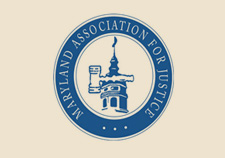In May of 2007, Esther and Gedalia Applegrad became the proud parents of a baby girl. Their little girl, however, suffered with brain damage and a seizure disorder, which the Applegrads claim is the direct result of mistake made by the doctors. They sued Valley Hospital in Ridgewood for malpractice, and asked the hospital to turn over specific memos regarding the institution’s internal investigation into the mistakes. The judge said the hospital didn’t need to do it. An appellate judge disagreed. The NJ Supreme Court just weighed in on the matter, and they sided with the hospital: the internal investigation will stay private.
Legally correct doesn’t always mean “right”
The problem stems from a 2004 law called the Patient Safety Act. The act permits the hospital to “assess adverse events in a confidential setting, in which an employee need not fear recrimination for disclosing his or her own medical error or that of a colleague.” In other words, the Patient Safety Act is designed to keep internal investigations honest about what happened, so that colleagues, staff and administrators can discuss hospital errors without fear of the responses of others within the organization.
The Supreme Court was legally correct in siding with the hospital, but that doesn’t make the decision “right.” A hospital facing a malpractice suit should not be able to hide documentation regarding the errors made in the case at hand. Ultimately, the point may be moot since the people who were part of the internal investigation may still be subpoenaed to testify – but it could set a dangerous precedent.
The issue we’re wrestling with here, though, comes back to the law. While hospital investigations should be allowed to run in a way that avoids recriminations, it seems wrong that those investigations cannot be used as evidence in a malpractice case. Any evidence of wrongdoing should be applicable, if that evidence can contribute in a meaningful way. What healthcare truly needs is transparency, and laws like the Patient Safety Act do little to help that need.
Maryland has a similar law for investigations performed by the Maryland Board of Physicians, a state agency that licenses physicians and investigates physician negligence and misconduct. Section 14-410 of the Health Occupations Article of the Maryland Code prevents any findings of an investigation by the Board of Physicians from being disclosed in discovery or admitted into evidence in a medical malpractice case, or any other type of litigation. This law prevents helpful evidence in medical malpractice cases from being evaluated by the jury, including a finding from the Board of Physicians that a doctor violated the standard of care. This is the kind of evidence juries should be allowed to consider when deciding whether a doctor was negligent, and is another example of the need for more transparency in healthcare.
For more information about medical malpractice, please visit Plaxen & Adler, P.A.





